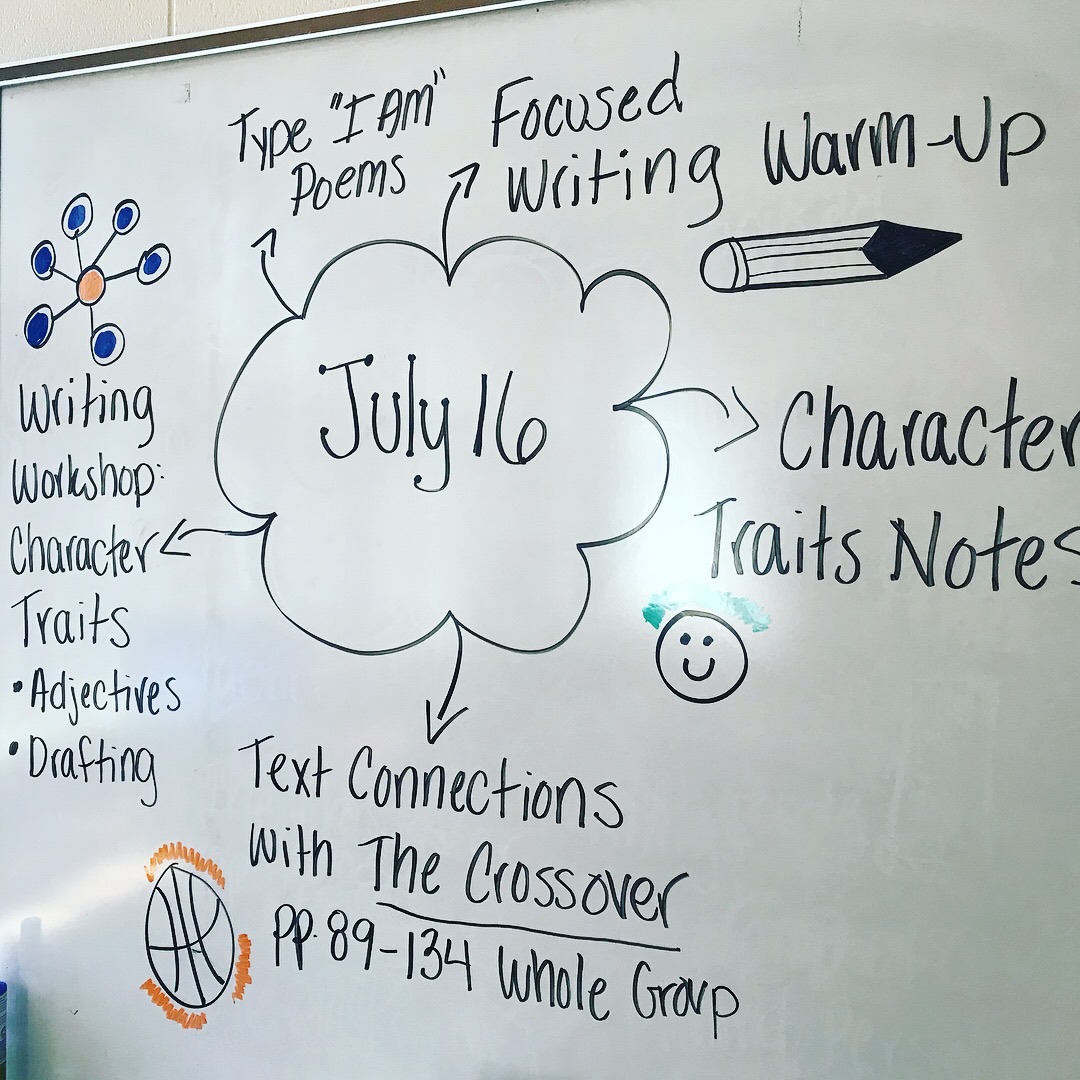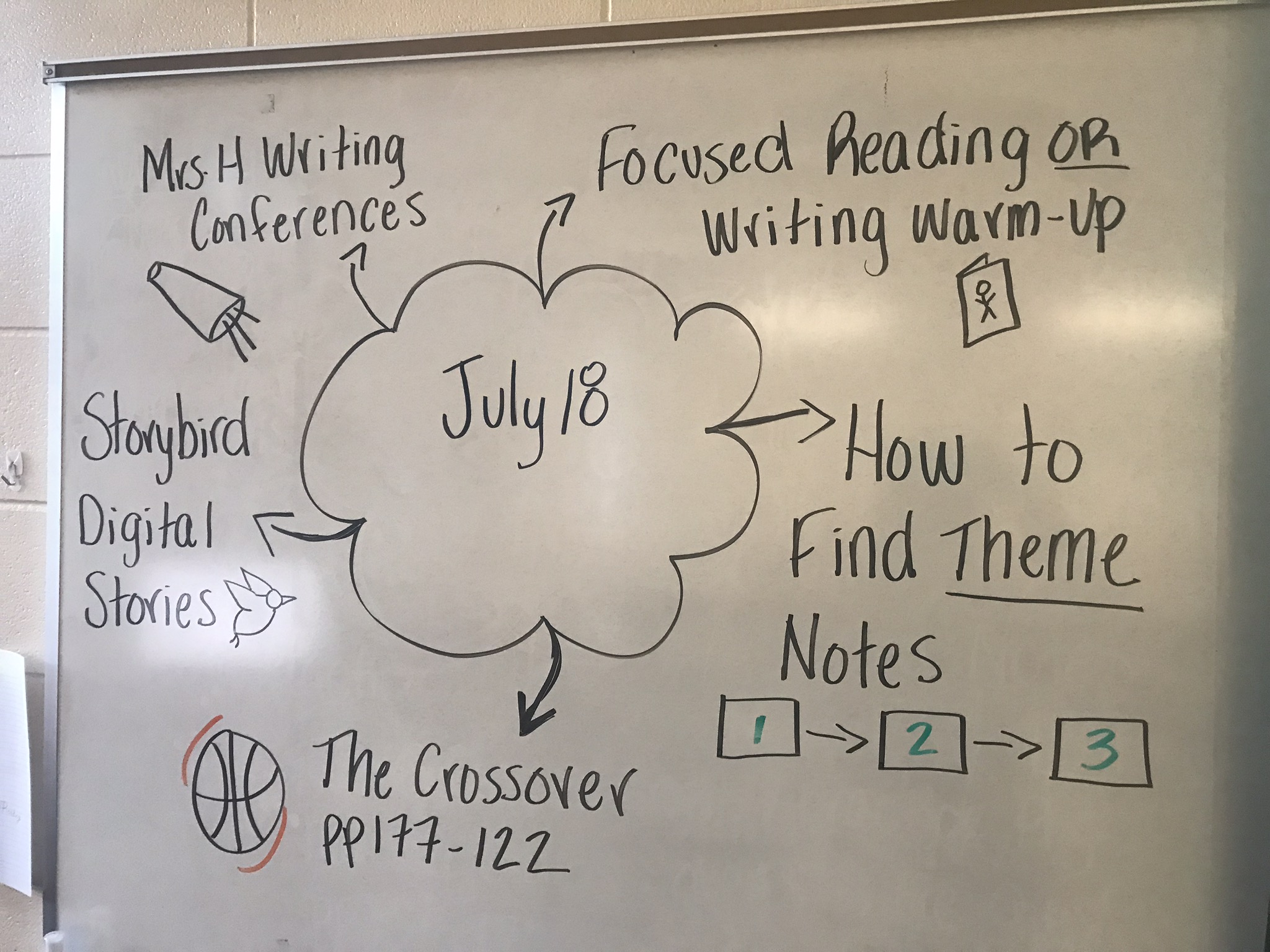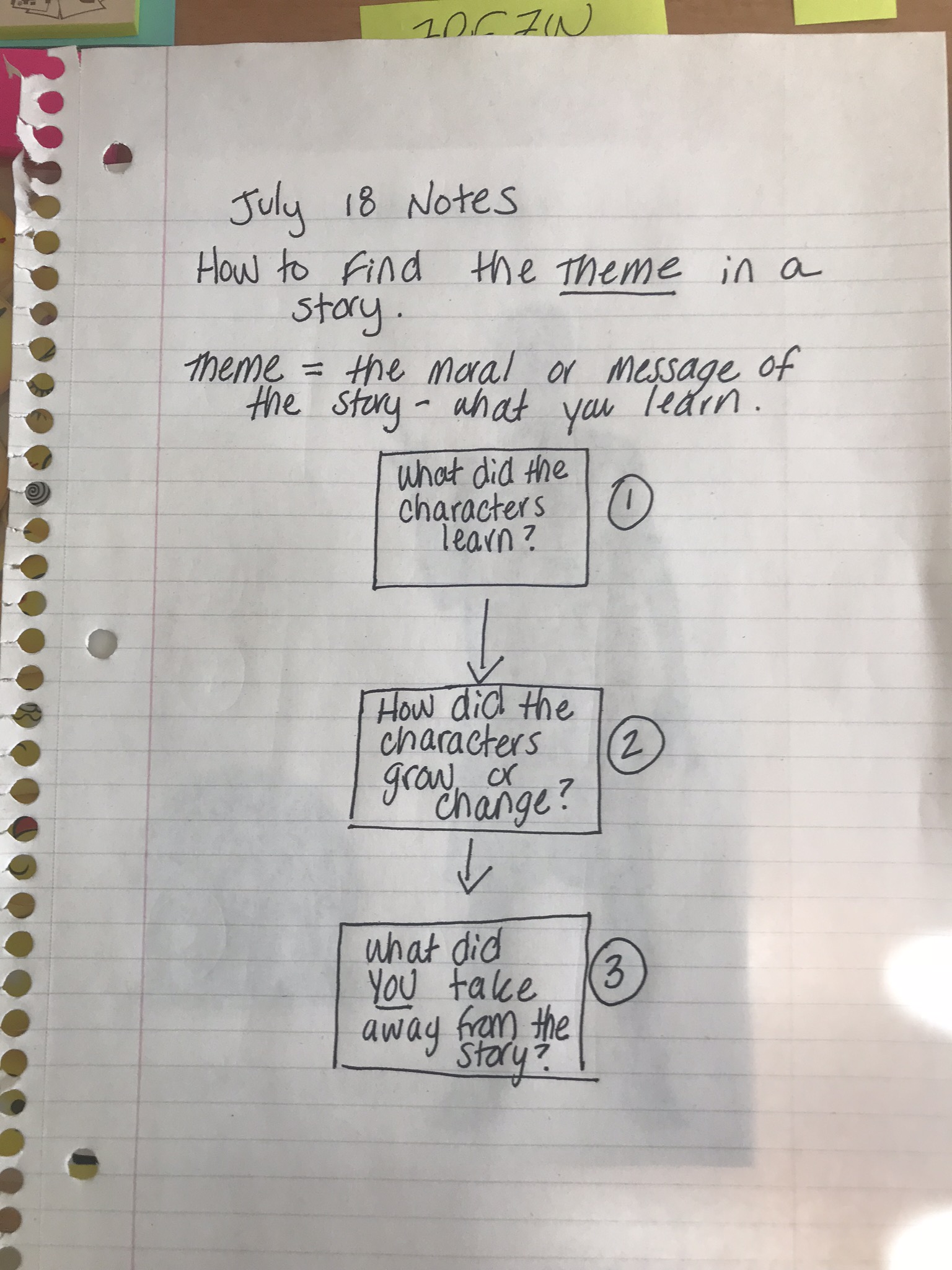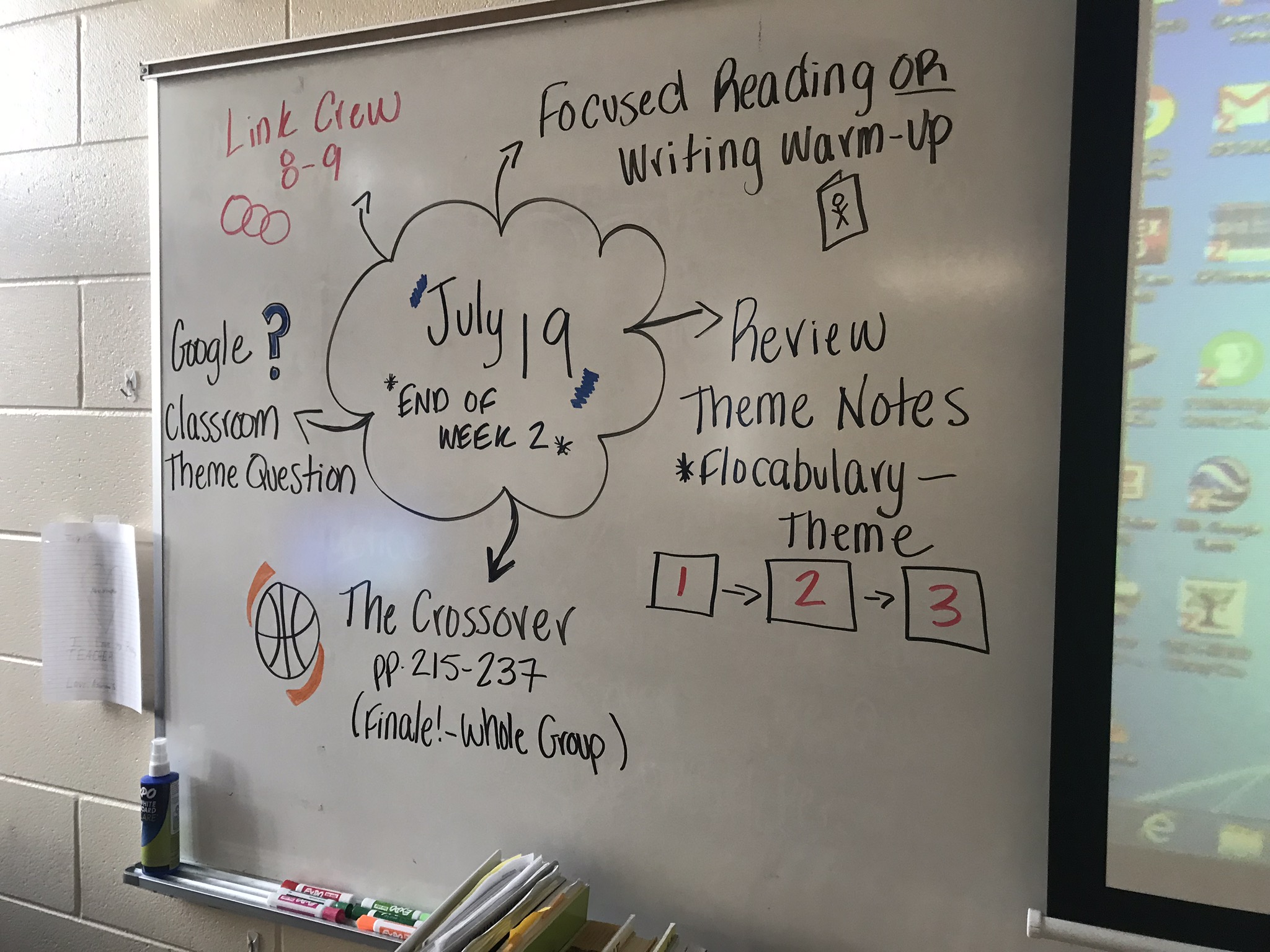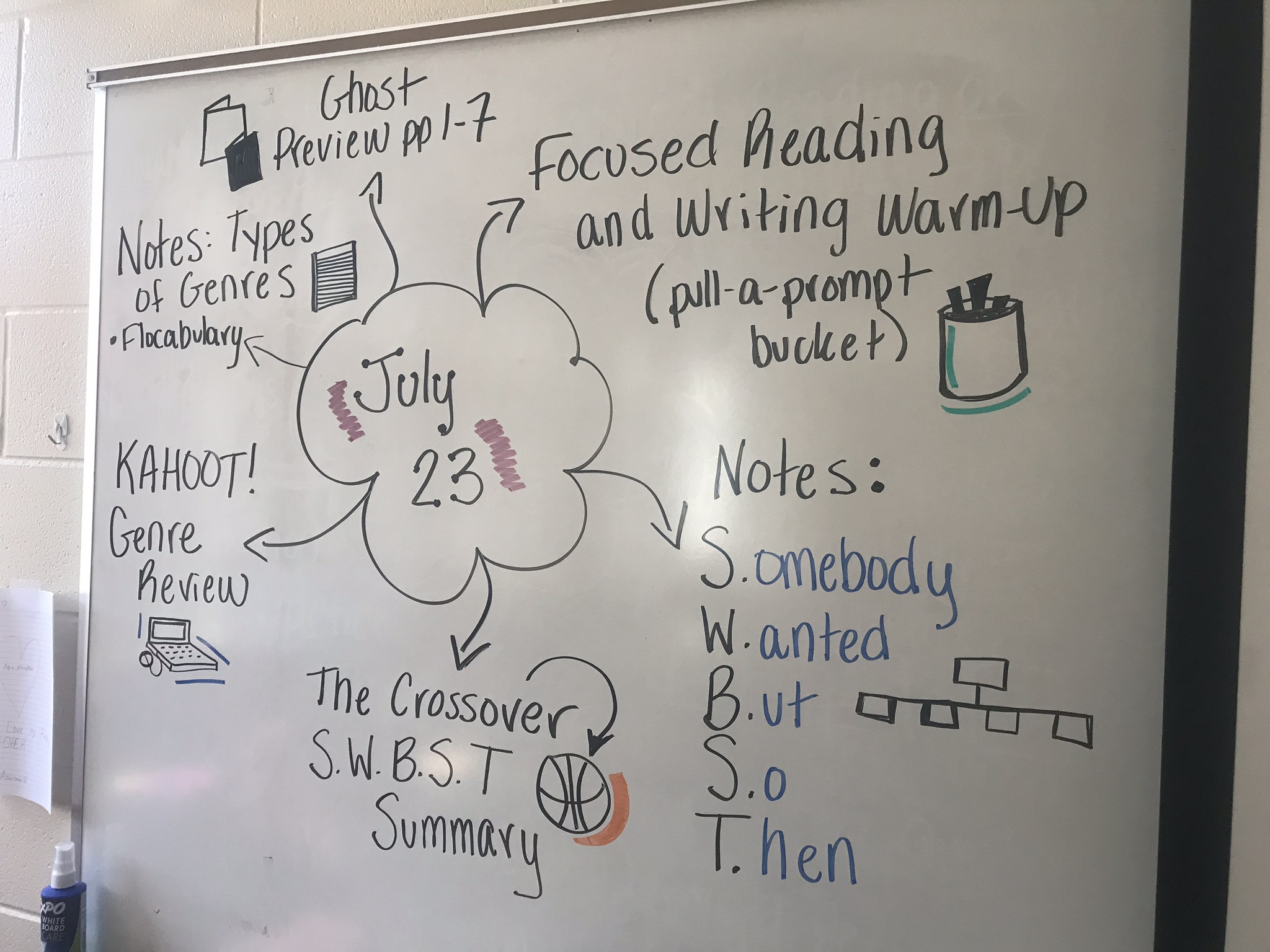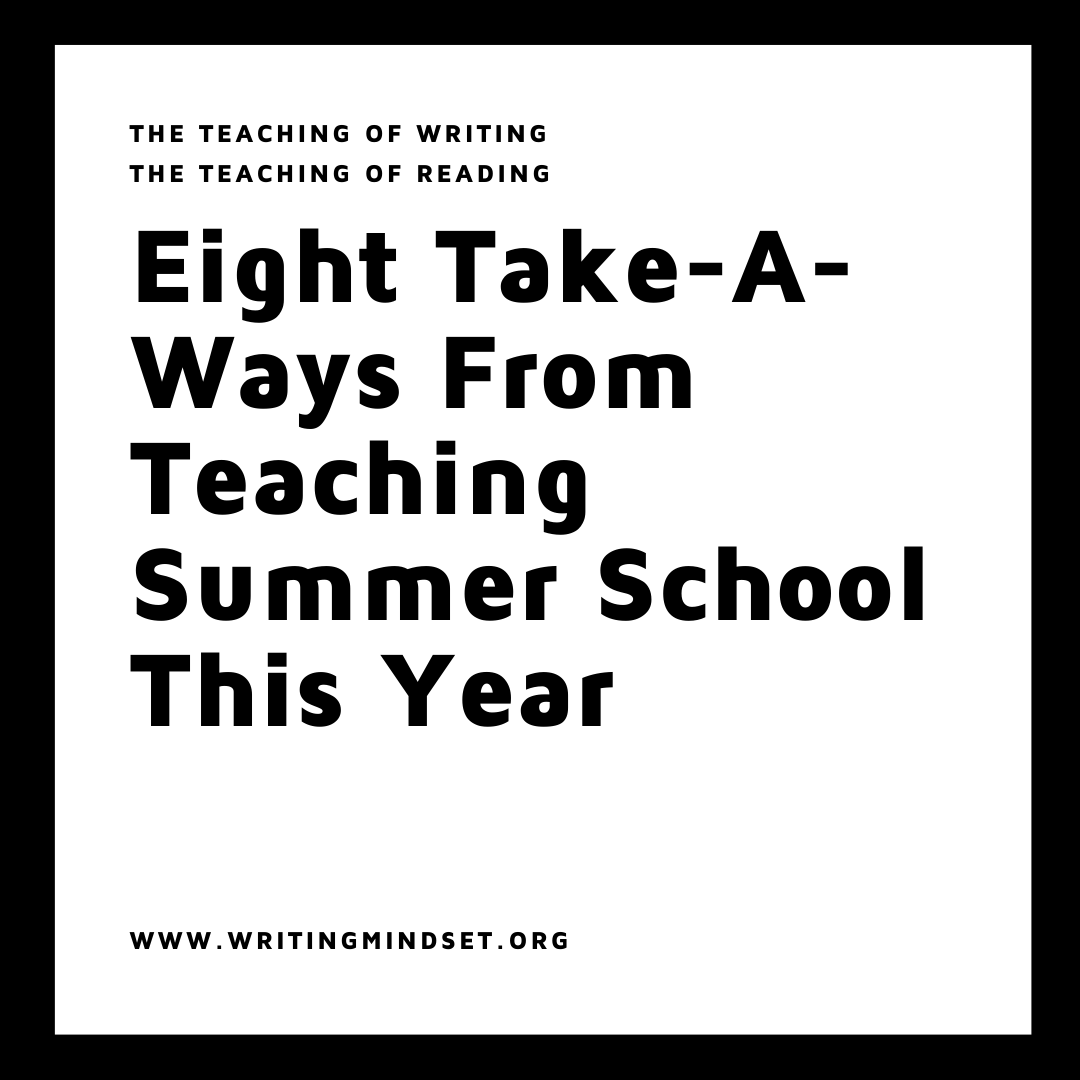Eight Take-a-Ways From Teaching Summer School This Year
Second Verse Better Than the First
Week two flew by without even slowing down to catch a drink of water. It was tough to balance wanting to do the things that summer allows like landscaping, working on an assortment of house projects, leisurely drinking coffee, and writing. I was having some jealousy over those that got to have the time off. My goal was to make it to the beach at least three times this summer. Let's just say my fingers are still crossed.
Last week at summer school we focused on THE BIG IDEAS and by that, I mean finding main ideas and theme. Both of these are needed to prepare for summary writing. Remember, from my first blog post from week 1, the plan is to expose my rising 6th graders to basic concepts they will need in the fall.
Eight Points of Pause
I wanted to focus this post on the top-eight take-a-ways I had from week two. Some were personal, some led to some conclusions about what I want to change in the fall, and some were in the moment ah-has I had while working with this awesome set of kids.
#8 I am reading professional development books to nurture my teaching soul.
I'm starting to read Linda Riefs The Quickwrite Handbook: 100 Mentor Texts to Jumpstart Your Students' Thinking and Writing, and I have all the ideas for the fall. I am curious as to how I can work this in for my struggling writers because Kwame Alexander has me convinced that the genre I love best-poetry-is what is best for teaching the building blocks of writing. I have just started looking at his book The Write Thing as a companion piece of teaching The Crossover and working new ideas into the writing workshop. Both of these books are helping me keep up with the epiphany moments I need to get excited about fall. I am thinking about revamping my warm-up schedule and using writing mentors for many of the days of the week.
#7 I have revisited how I want to teach annotation.
I haven't gotten to annotation skills yet with summer school students. But I am always thinking about what is coming next. I really like the One-Pagers that many English teachers online are using sketchnotes. WeAreTeachers has a great summary post on One-Pagers. However, I would also like to see a summative assignment for students' annotation with each of the books we read. Students ask me all the time, "Mrs. Hampton do I have to annotate?" I always reply with a "YES!" but do they have a purpose for this annotation? Providing purpose for work is my mission for 2018-2019. I always teach annotation as one of the first skills at the beginning of the year, and I am always open to other ways I can use it to be purposeful and practical.
#6 Kids love novels-in-verse.
I write in poetry, but I often don't get to teach as much poetry as I want to because students sometimes hate it. Kwame Alexander reminds us that the white space makes it accessible. Kids are not afraid of the page because it invites them to read the words that are placed on it. They are eating up The Crossover by Kwame Alexander because they can process the information and still maintain momentum while reading the text. Especially my struggling readers need to feel that momentum while they work on their fluency and comprehension. We cannot escape into a reading world if we cannot understand that world. I am looking about adding poetry to my quickwrite warm-ups and in-between major lessons in each of my six marking periods.
#5 Sentence frames are a teaching gal's best friend.
I have always loved sentence frames; however, I wanted to reiterate how much they make my life better at all times. In my older post, Using Writing Frames to Help Struggling Writers, I talk about sentence starters and helping students frame their ideas. This has become a cornerstone to teaching writing, but to also helping students analyze their reading. It is good to remember that they are not the fix-all. Students, even when given the start to a sentence, sometimes don't know how to finish a thought. This is where asking students questions about their thinking becomes important.
Teaching Moment: I had a student that even when prompted with questions refused to articulate his thinking. After reiterating he had an opinion worthy of sharing, I gave him some thinking time and circled back to ask him his opinion. He still didn't want to share. I gave him the option to write down this thinking. After STILL refusing to share, I asked him a different question. He answered. I always have to remember that students want choice. How we get feedback from one student may vary to how we get feedback from another. I never want to give up and showing kids their opinion matters. Simple rephrasing in this situation was the make-or-break difference in building's this student's self esteem.
#4 Find joy and fun in your teaching. Please.
I got the itch around Tuesday. I looked at my parapro this week and said, "We are due to have some fun." Not that every day is painfully boring. Trust me. I try to make finding the main idea as exciting as possible. However, I also know they need time to be kids and to enjoy writing and reading in unstructured settings. Cue StoryBird. StoryBird's tagline is "Artful Storytelling" because they supply the art and the students log in to write the stories. Kids love this website because it is visual, digital, and fun. They asked for more the next day. And then the next.
#3 The power of the paragraph.
I am not going to be the middle school teacher that asks the elementary school teacher, "Why do they come to me and not know how to write a paragraph?" I know the answer. They are working on the skills where they are at the time. However, the fact of the matter is due to 1.) skill 2.) various teaching approaches and 3.) practice and repetition, it is a fact that kids don't come with paragraph writing skills to middle school. As I looked at some very frustrated faces, I was reminded of how much we need to practice this skill before we get started on essay writing. What's that old phrase about walking and running? I used some frames and held them to the expectation. It may have taken 25 minutes to write a paragraph, but we got through it together and with success.
#2 Don't overuse your favorite resources.
The Cult of Pedagogy recently published an article about how technology maybe actually hurting students, and teachers should do a quality check on technology. I loved this post because it speaks to the things we overuse in education, and it also speaks to the constant need to evaluate and re-evaluate our practices. We are all guilty of finding something that works and then using it so much that kids get sick of it. For example, Kahoot, Nearpod, Google Classroom, or my personal favorite...Flocabulary. An example of this was when I was showing another Flocabulary video, and I realized I was annoyed at the video that was playing. If I was annoyed, my students must have been certainly bothered. Variety is key. Just because one thing works really well one day, does not mean it will always be the best tool to use for every single situation.
#1 Theme is undertaught (because it can be scary to teach).
Working with students on the moral of the story or the lesson is one thing, teaching them that it is different from the main idea is a completely different beast. I was brought back immediately to common student reactions when we ask them, "What is the meaning of this story?" "What truth do we get from this?" Many students will respond with something related to one of the text elements. For example, if a girl loses her puppy in the story, a student may respond: "A girl should keep track of her puppy." It is important to validate and reframe these ideas for students to get them thinking about more abstract ideas that guide each of our lives. Teaching theme is scary because it is abstract. We have to make it tangible.


